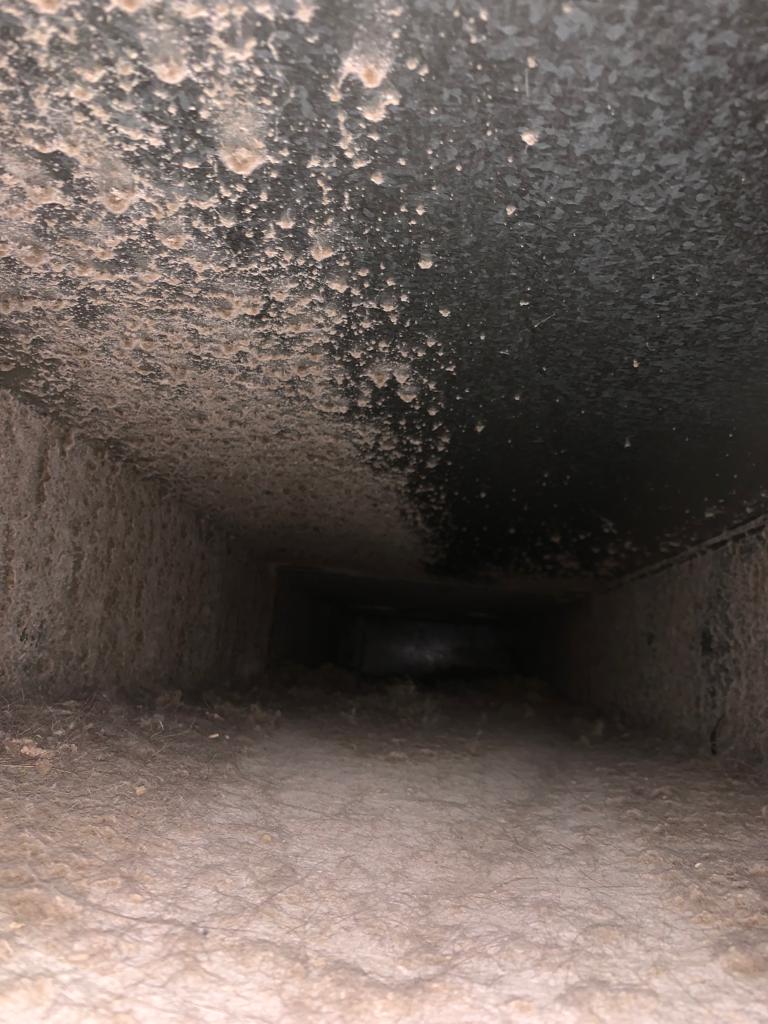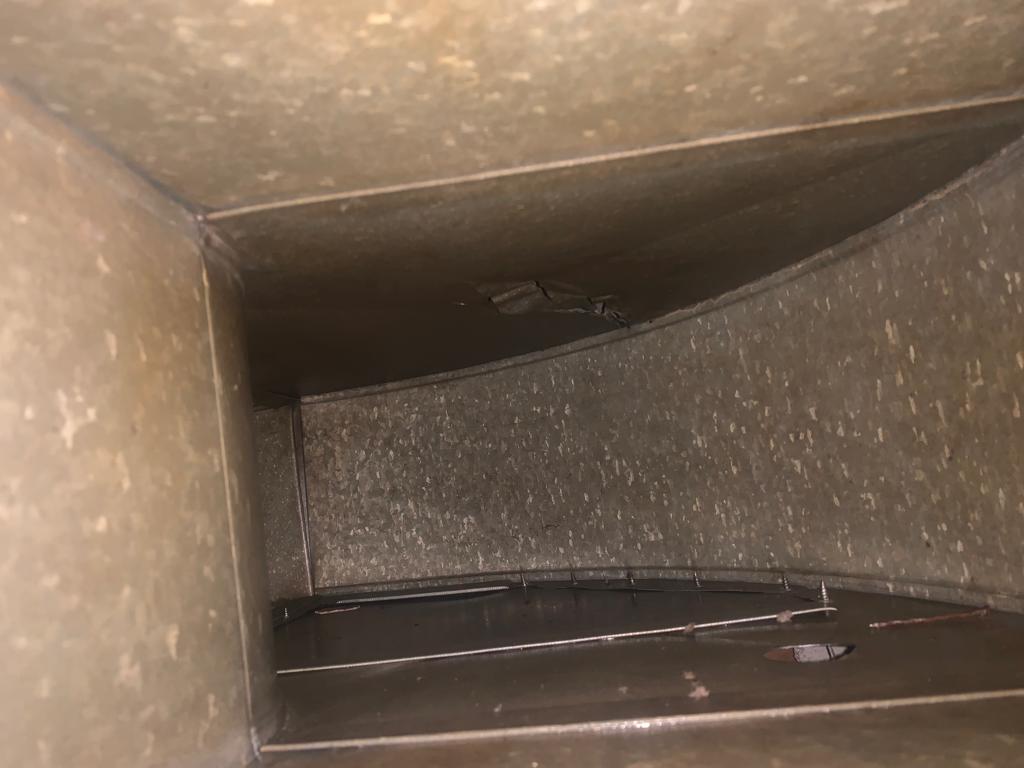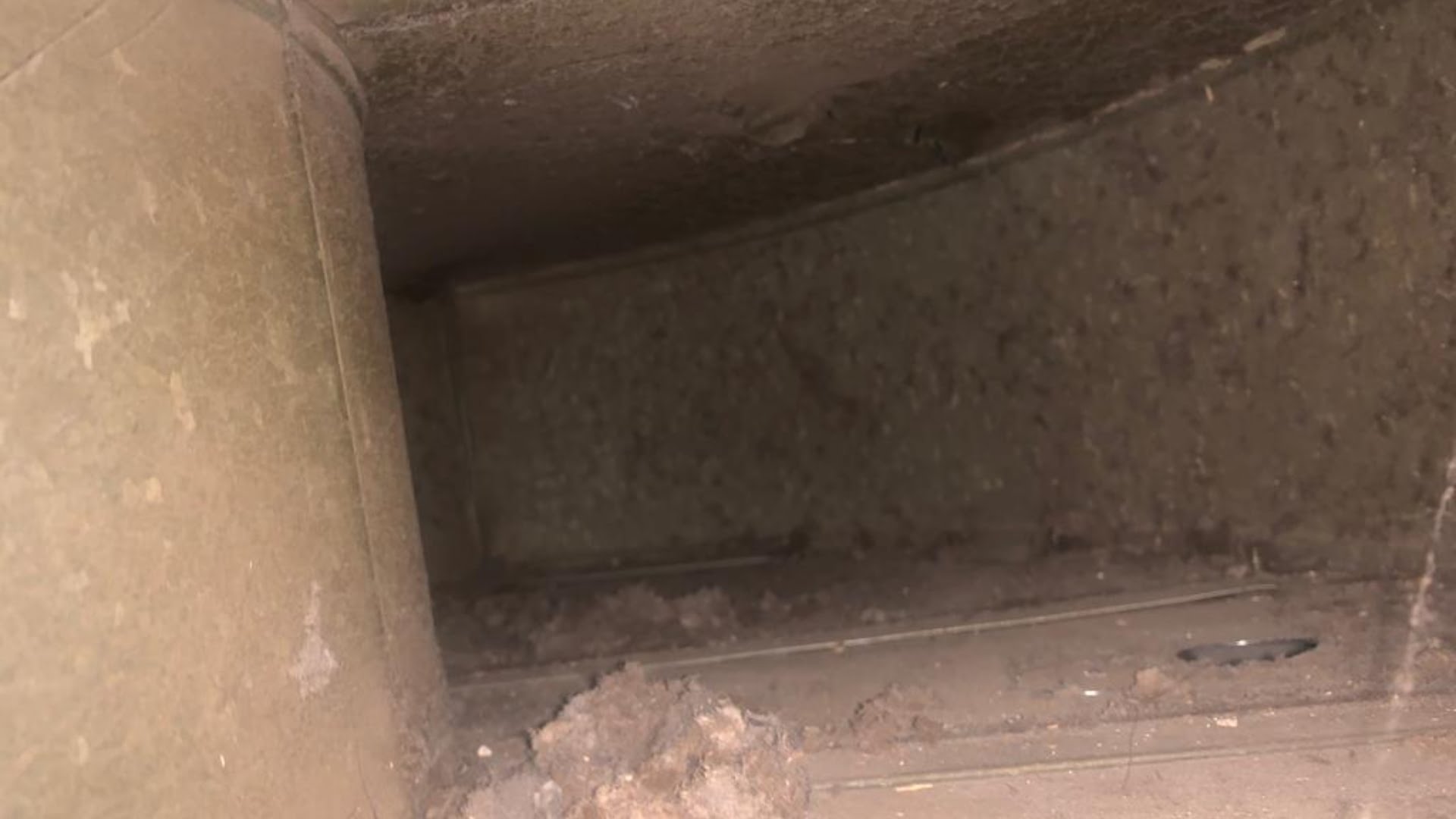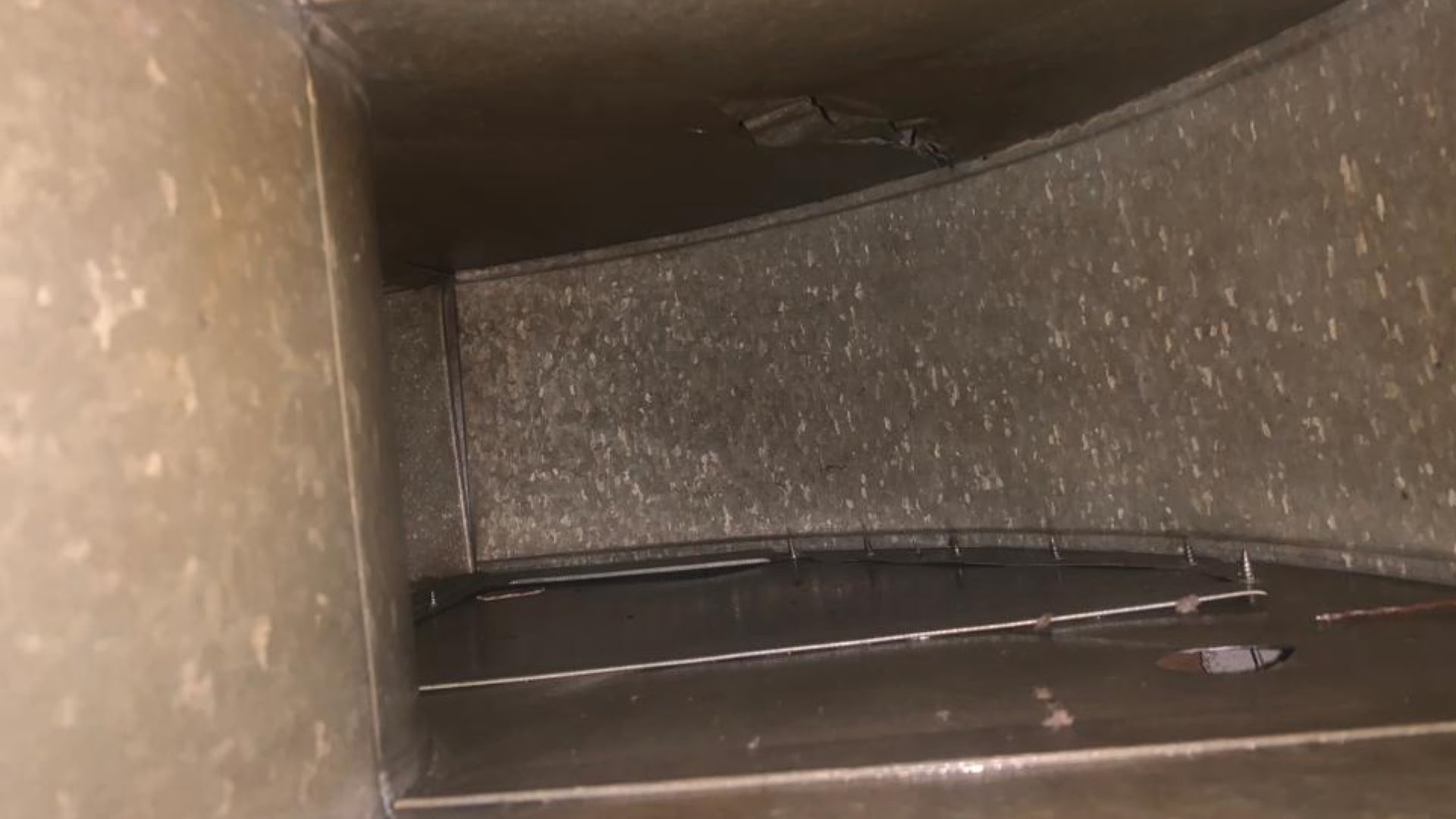Air Exchange Cleaning Services
Assessment: Begin by assessing the condition of the air exchanger and its vents to identify any visible buildup of dust, dirt, or debris.
Filter Inspection: Check the air exchanger filters for accumulation of dirt and replace or clean them as necessary to ensure proper airflow and filtration.
Duct Examination: Inspect the ductwork connected to the air exchanger for any obstructions or blockages that could impede air circulation.
Component Cleaning: Clean the internal components of the air exchanger, including fans, coils, and heat exchangers, to remove accumulated dirt and debris.
Ventilation Vent Cleaning: Use specialized tools to clean the vents and grilles connected to the air exchanger, removing dust and debris buildup for improved air circulation.
Vacuuming: Utilize a vacuum cleaner with a brush attachment to remove loose dust and dirt from both the interior and exterior surfaces of the air exchanger and its vents.
Disinfection: Apply disinfectants to sanitize the air exchanger and vents, eliminating any bacteria or mold that may be present, especially in areas prone to moisture buildup.
Wiping: Use a damp cloth to wipe down accessible surfaces of the air exchanger and vents, removing stubborn dirt and grime for a cleaner environment.
Adjustment: Ensure that all vents and grilles are properly aligned and unobstructed to maximize airflow efficiency throughout the building.
Professional Maintenance: Consider hiring a professional HVAC technician for comprehensive air exchanger and vent cleaning at least once a year to maintain optimal performance and indoor air quality.


Why We Are The Best?
Our team of professionals is highly trained and experienced in providing top-notch air exchange cleaning services. We use state-of-the-art equipment and techniques to ensure that your air exchange system is thoroughly cleaned.
At BlueGuard, we are committed to delivering the best service possible and strive to exceed our customers’ expectations every time.
Overall, BlueGuard’s expertise, quality equipment, commitment to customer satisfaction, and comprehensive services make us the best choice for air exchange cleaning in Canada.
- Trained Staff
- Top Equipments
- 100% Online Booking
What we do in Air Exchange cleaning?
Flexible Pipes
Inlet Vents
Outlet Vents
Fan
Filters
Core
Benefits of Air Exchange Cleaning
Improved overall HVAC system efficiently
Regular air exchanger cleaning can improve the overall efficiency of your HVAC system reducing the energy costs.
Effective Odor Elimination
Air exchanger cleaning will effectively eliminate odors, which is one of the major benefits of air exchangers.
Minimize health risks
A clean air exchanger can effectively evacuate stale air and moisture and bring in the fresh air that results in minimization of health risks like asthma and sinus.
Comfort level increased
A clean air exchanger will be effective to maintain good quality air resulting in the increase of comfort level.
Humidity Control
Regular maintenance of air exchanger results in effective humidity control.
Good Quality Air
Regular air exchanger cleaning allows the air exchanger to efficiently remove pollutants, dust, and allergens, resulting in good indoor air quality.
Health dangers of not cleaning Air Exchange
Allergic Reactions
Pollen and germs can be collected in the air exchanger filters, resulting in several nasal allergies.
Congestion
Continuous exposure to bad-quality air results in congestion and cough
Sinus
Sinus can be dangerous as it keeps making you sick, especially if it is triggered by your own house.
Fatality
As the air quality is reduced and the body will have to work harder to breathe there are high chances that you can become tired easily
Dry itchy eyes
The bad air quality and dust can cause the eyes to be dry and itchy
Skin allergies
Clogged filters in the air exchanger can draw dust reducing the air quality of the house. This can lead to several skin allergies.
Before and After


FAQs
The frequency of air exchanger cleaning depends on several factors, including the type of air exchanger you have, the level of use, and the presence of pets or other sources of contaminants in your home. Here are some general guidelines for how often to clean your air exchanger:
For a standard air exchanger, it is generally recommended to have it cleaned every 2-3 years.
If you have a heat recovery ventilator (HRV), it is generally recommended to have it cleaned every 1-2 years.
If you have pets or live in an area with high levels of outdoor air pollution, it may be necessary to clean your air exchanger more frequently.
If you notice an unusual increase in dust or other contaminants in your home, it may be time to clean your air exchanger.
It is important to note that these are general guidelines and the actual frequency of cleaning may vary based on your specific circumstances. It is always a good idea to consult with a professional HVAC technician to determine the best cleaning schedule for your air exchanger.
The frequency of filter cleaning in an air exchanger depends on the type of filter you have and the level of use. Here are some general guidelines for how often to clean or replace the filter in your air exchanger:
For a standard fiberglass filter, it is generally recommended to clean or replace it every month.
For a washable filter, it is generally recommended to wash it every month.
For a high-efficiency filter, such as a pleated filter or a HEPA filter, it is generally recommended to clean or replace it every 3-6 months, depending on the manufacturer’s recommendations and the level of use.
It is important to note that these are general guidelines and the actual frequency of filter cleaning or replacement may vary based on your specific circumstances. It is always a good idea to consult with a professional HVAC technician or refer to the manufacturer’s recommendations for the specific filter you are using.
There could be a few reasons why your air exchanger is not working after cleaning. Here are a few possible causes and solutions:
The power supply is not connected or the circuit breaker has tripped: Make sure that the power supply to the air exchanger is properly connected and that the circuit breaker has not tripped.
The air exchanger is not properly installed: If the air exchanger was not properly installed, it may not function correctly. In this case, you may need to have it reinstalled by a professional.
There is a malfunction or problem with the air exchanger: If the air exchanger was working properly before cleaning but is not functioning correctly after cleaning, there may be a malfunction or problem with the unit itself. In this case, you may need to have it repaired or replaced by a professional.
The air exchanger was damaged during cleaning: If the air exchanger was damaged during cleaning, it may not function correctly. In this case, you may need to have it repaired or replaced by a professional.
It is always a good idea to consult with a professional HVAC technician if you are experiencing issues with your air exchanger after cleaning. They will be able to diagnose the problem and recommend the appropriate solution.
Yes, air exchangers should be cleaned on a regular basis to ensure that they are functioning properly and efficiently. Over time, dust, dirt, and other contaminants can accumulate in the air exchanger, reducing its performance and potentially leading to issues such as poor indoor air quality or system malfunctions.
Cleaning your air exchanger can help to remove these contaminants and improve the overall performance of the system. It can also help to extend the lifespan of the air exchanger and reduce the need for costly repairs or replacements.
The lifespan of an air exchanger can vary depending on the type of air exchanger you have and how well it is maintained. Here are some general guidelines for the lifespan of common types of air exchangers:
Heat recovery ventilators (HRVs): The lifespan of an HRV is generally 10-15 years.
Energy recovery ventilators (ERVs): The lifespan of an ERV is generally 10-15 years.
Air-to-air heat pumps: The lifespan of an air-to-air heat pump is generally 10-15 years.
Central air conditioners: The lifespan of a central air conditioner is generally 10-15 years.
It is generally not recommended to turn off your air exchanger in the winter. In fact, it is important to keep your air exchanger running during the winter months to ensure that your home has proper ventilation and to prevent excess moisture from building up inside your home.
Excess moisture can lead to a variety of issues, including mold growth, structural damage, and respiratory problems. An air exchanger helps to remove excess moisture from the air by bringing in fresh, dry outdoor air and exhausting indoor air.
If you are concerned about energy efficiency, there are a few steps you can take to help reduce the energy usage of your air exchanger:
Make sure the air exchanger is properly sealed and insulated.
Keep the air filter clean and replace it as needed.
Set the thermostat to a lower temperature when you are not home or when you are sleeping.
Use a programmable thermostat to automatically adjust the temperature when you are not home or when you are sleeping.
It is always a good idea to consult with a professional HVAC technician if you have any concerns about the operation of your air exchanger. They will be able to provide specific guidance based on your individual circumstances.

